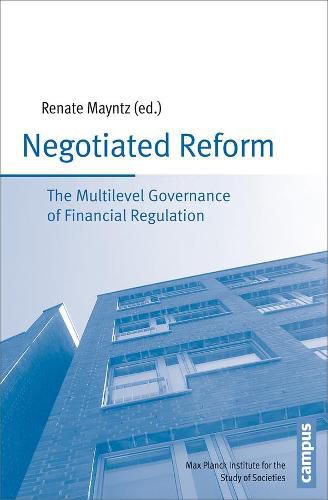Readings Newsletter
Become a Readings Member to make your shopping experience even easier.
Sign in or sign up for free!
You’re not far away from qualifying for FREE standard shipping within Australia
You’ve qualified for FREE standard shipping within Australia
The cart is loading…






Multilevel structures are becoming increasingly characteristic of the world in which we live. This book is a unique study of policy making in a multilevel political system extending from the national to the international level. Taking as its subject the process of financial market reforms that took place following the recent financial crisis, it brings together an international group of renowned social scientists to explore the interplay between international organizations, European authorities, and regulators in the United States, the United Kingdom, and Germany in global financial decision making. Contributors thoroughly explore a small set of reform issues-including bank structure, bank capital, resolution, and over-the-counter trading of derivatives-to provide a detailed view of the vertical and horizontal interactions between these actors as related to a set of key questions: Are those states affected by the crisis adopting internationally negotiated regulations? Or are they instead determining the European and international reform agenda? Are the agreed upon policies contributing to greater harmonization of financial regulation in a multilevel political system? Or is the process being dominated by differing national interests?
$9.00 standard shipping within Australia
FREE standard shipping within Australia for orders over $100.00
Express & International shipping calculated at checkout
Multilevel structures are becoming increasingly characteristic of the world in which we live. This book is a unique study of policy making in a multilevel political system extending from the national to the international level. Taking as its subject the process of financial market reforms that took place following the recent financial crisis, it brings together an international group of renowned social scientists to explore the interplay between international organizations, European authorities, and regulators in the United States, the United Kingdom, and Germany in global financial decision making. Contributors thoroughly explore a small set of reform issues-including bank structure, bank capital, resolution, and over-the-counter trading of derivatives-to provide a detailed view of the vertical and horizontal interactions between these actors as related to a set of key questions: Are those states affected by the crisis adopting internationally negotiated regulations? Or are they instead determining the European and international reform agenda? Are the agreed upon policies contributing to greater harmonization of financial regulation in a multilevel political system? Or is the process being dominated by differing national interests?